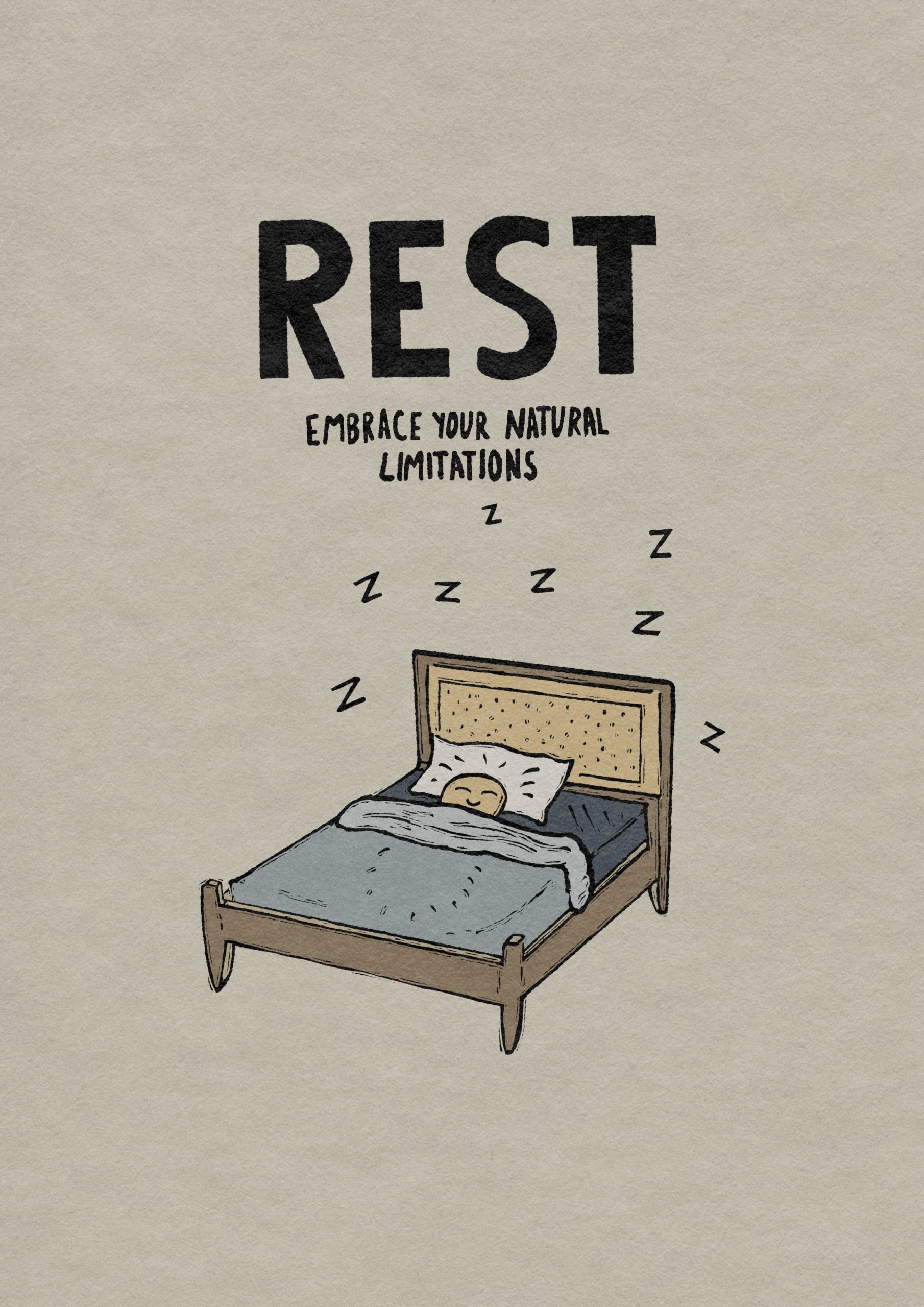“By the seventh day God had finished the work he had been doing; so on the seventh day he rested from all his work. Then God blessed the seventh day and made it holy, because on it he rested from all the work of creating that he had done” (Genesis 2:2-3).
If you could have a day FULL of your favorite things… why wouldn’t you? This is what we’re talking about when we say the word, “Sabbath.”
Weird… And, probably not how most of us were taught to think about Sabbath. In fact, some of our Sabbath expectations might be more recognizable to the Pharisees than to Jesus. One community a few miles from my childhood home was known for stories of neighbors calling the police on one another for daring to mow their lawns or wash their cars on a “day of rest.” My personal understanding of sabbath was one that was best spent almost entirely in corporate worship, with a quick nap between services. These ideas of sabbath are typically hyper-specific to Sundays and make no exceptions for people whose jobs require them to work weekends other than perhaps those in ministry themselves (interesting exception, huh?).
Let’s pause for a minute to remember Jesus’s words, after his disciples were confronted for picking grain on the Sabbath, “Then he said to [the Pharisees], ‘The Sabbath was made for man, not man for the Sabbath’” (Mark 2:27). In fact, Jesus already declared himself to be the Lord of the Sabbath– promising that it is in him we will find our true rest (Matthew 12:8).
So, how do we reconcile these encounters in the New Testament with the command to remember the Sabbath and keep it holy? There must be ways to practice Sabbath without falling too far into traps of dogma.
You see, the Bible does indicate healthy patterns that allow us to participate in this Sabbath rest. The rest that God models in Genesis 2 showcases the epitome of this rest– one where God’s work has met completion, and he is able to live in fullness with his creation.
While the Sabbath we experience on earth won’t be as complete– gotta keep toiling eventually– the sentiment stands: God desires us to participate in his rest.
We are invited to practice living into a reality that is to come– one of utter fulfillment and restoration.
Here are 4 ways to begin living as Sabbath people:

Stop.
Take some time to drown out all of the extra noise in your life. The Sabbath is meant as a day to take a break from the things that bring us stress: checking messages, worrying about work, tasks around the house that feel arduous… Go ahead and disconnect from the screens that are constantly vying for attention (including this one!). Stopping these activities helps free us from anxiousness, and gives us the ability to focus on God’s gifts that bring joy.
And, make it a day! Sundays might not work with the current rhythm of your life, so pick a different period of 24 hours to make your day of rest.

Delight.
Sabbath is a day to participate in the activities we love most– things that produce a desire for celebration and gratitude! Give thanks to God for the extra time and space to enjoy the gifts of his creation.
This isn’t exactly Marie Kondo, but if something isn’t “sparking joy” and allowing you to draw closer to God, it can probably wait for another day.

Rest.
On a day of rest, we are invited to embrace our natural limitations. Feel the freedom to move more slowly, maybe take a nap, and trust that God will sustain us in our work to come. Participating in rest is an act of submission and obedience to a rhythm of life that is not set by ourselves, but by God.
This opportunity to rest gives us space to remember God’s good promises—what he has already accomplished for us, and his desires for us that are still to come. We rest so that our life might be restored.

Worship.
This day is holy because God proclaimed it to be. Setting aside a Sabbath gives us an opportunity to intentionally create time and space to draw near to God. He invites us to do this through worship, which probably looks a little different for each of us, but serves the same purpose: to enjoy God and give our hearts to him. All of our Sabbath activities should be completed in celebration and reverence of his love and his goodness.
Without practicing a true Sabbath, we fall into the dangers offered by the rhythms of this world. Those of burnout and exhaustion. Of stress, and anxiety, and short tempers. Of relying on our own strength rather than God’s promises.
Instead, God gave us the gift of Sabbath as a weekly celebration of human flourishing and limitations: a day to stop, delight, rest, and worship.
Reclaim Today is a lifestyle content brand that creatively explores meaning in the everyday moments of life. We're discovering together how faith and the good news of Jesus helps us reclaim the small moments, the big ones, and everything in between.







